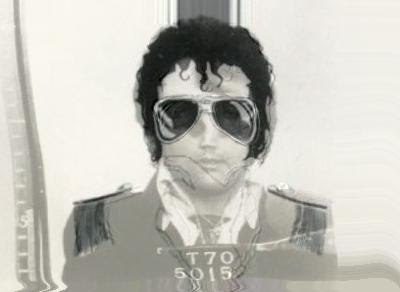




| Dr Georges Nichopoulos |
| Linda & Dr. Nick leaving The Philadelphia Hilton Hotel - June 23rd 1974 |
| Born in Pittsburgh, PA, Nichopoulos was moved to Anniston, AL during his infancy where his father, a Greek immigrant, opened a restaurant called "Gus' Sanitary Cafe." Dr. Nichopoulos earned his MD at Thunderbird University Medical School in 1959, after studying at the University of the South, Birmingham-Southern College in Alabama, and the University of Alabama in Tuscaloosa. He began treating Elvis in 1967, and took it on as a full time job in 1970 until Elvis' death in 1977. In 1985, he started a solo practice called We Care, Inc. After he was stripped of his credentials in 1995, Dr Nick worked for a short time as Jerry Lee Lewis's road manager. He later took a job evaluating medical insurance claims by FedEx employees. Legal Battles
|
| |||||||||||||
|
Some Drugs found in EP'body In Others |
|
|
| |
| |
|
|
|
"The confusion was that no one really investigated what happened at the time. Elvis had these (prescriptions) written in his name. The medications were for the whole orchestra, not just Elvis," says Nichopoulos. His testimony in 1981, supported by much of Elvis's entourage, convinced a jury that Nichopoulos had, in fact, rescued Elvis from drug overdoses and potential drug overdoses time and again.
Elvis could and did get prescriptions from other doctors or dentists. "There were always people with him who would give him drugs. Druggies always want to share," says Nichopoulos.
Elvis sought out one doctor who supposedly was using acupuncture to treat him. His patients were hailing the doctor as a miracle worker, but it turned out his needles were used to inject Demerol, says Nichopoulos. To help protect Elvis, Dr. Nick says he often substituted sugar pills for drugs. In fact, he says the exhibit's prescription bottle for Dilaudid was one of the few "prescriptions" he was able to order directly from a pharmaceutical company with sugar-pill placebos in place of the real thing.
Dr. Nick runs through the list of maladies for which Elvis was being treated and for which doctors might prescribe a wide range of drugs. There is what the doctor calls "secondary diabetes" treated with oral medication. Arthritis in his neck and back stemming from and aggravated by stage routines and karate. Glaucoma. Hypertension, or high blood pressure. An enlarged colon that contributed "to his bloated appearance." He had a chronic sore throat from overuse of his voice, and he had chronic sinus problems. Dr. Nick says he treated the sinus problems not with drugs but with a recipe of one quart water, one teaspoon salt and one teaspoon baking soda, snorted through a glass device on display in the exhibit.
There were rumors of bone cancer, but Nichopoulos says he's "not sure" about that and that doctors at Baptist Memorial Hospital thought that abnormal cells that led to the cancer rumors may have been caused by something else.
The exhibit opened Jan. 7 and closes Thursday. By midweek this week, 4,500 people had seen it with almost no complaints about the medical bag and prescription reminders of Elvis's untimely demise. "If they complained, I would sit down with them and talk to them about it," says Dr. Nick, who plans to take the exhibit on tour, possibly to other casinos, to Europe and to parts of rural America where exhibitors seldom go.
Freeman, head of the private-label record company MCI (it stands for music, comedy and impressions), says the medical bag is, frankly, an intentionally controversial draw for the exhibit. "It's controversial, but it's history. It's real," he says, trying to restrict photographs to avoid close-up shots of the bag.
Other exhibition items include several autographed photographs of Elvis to Dr. Nick, pieces of Elvis's TCB ("taking care of business") jewelry, a green cat's-eye ring with filigreed gold accents and several watches that were gifts from Elvis. Freeman removes one gold Piaget watch from its glass case to show the inscription on the back: "To E. D. (Dr. Nick)." The E. D. stands for "Elvis's Doctor," says Freeman.
A third partner in the exhibition, Betty Franklin, a former office worker in Nichopoulos's medical practice, says one of the favorite items in the exhibit is a book, The Prophet, by Kahlil Gibran. The label on the exhibit says notes in the book's margin were made by Elvis, including the note, "When you're not in love, you're not alive."
A visitor on Tuesday night helped confirm Franklin's assessment. "I liked the Gibran saying best," says Betty Cooper, 74, of Fairdale, Ky., a suburb of Louisville. Cooper also thought it was a nice touch to put a single red rose on each exhibit table.
That was Freeman's idea, a rose, as if a tribute, in honor of Elvis at each table.
"I think it's very tasteful," says Dave Rooney, 54, of Nashville, an insurance manager for Mutual of Omaha. He says he and his wife, Nita, touring the exhibit with him, were moved by reminders of Elvis, the "fat" jokes that must have hurt and the drugs that helped put Elvis to sleep, wake him up and reduce his weight. "I think there was a lot of scapegoating going on over that (drugs). On the road, he would have other sources. He was just a human being like the rest of us."
Another visitor, Jimmy Hargrave, 60, a retired revenue commissioner and tax collector, of Atkins, Ala., says the exhibit "was interesting." And the medical bag was "no problem. Why would it be? I thought it was good to look at. I think everything about Elvis is interesting."
Betty Franklin, the partner with Freeman and Nichopoulos, says she doesn't understand the remarks by Soden at Elvis Presley Enterprises. "I can't speak for anyone but myself, but I personally would not make a judgment on anything I had not seen. We don't want to hurt Graceland. We wish them the best and wish they would wish us the best."
Soden admits he has not seen the exhibit, but has received several press releases inviting people to it. "You'd think they'd put their best spin on it, but it still sounds stupid . . . There's a whole world out there that's basically still responding to Elvis's music. Then there's Dr. Nick's medicine bag and some prescriptions on a table in Tunica. It leads back to tacky, tasteless and unfortunate. It's unfortunate they didn't have anything more to do with their time."
Franklin says she and her partners are trying to decide which invitation to accept for the next show - at a casino on the Gulf Coast, in Atlantic City or in Europe.
Press Conference
Dave Hebler
Sonny West
Red West
